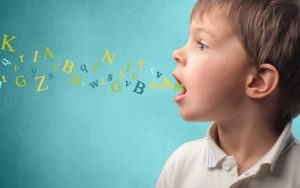
Sound and child development. Children’s verbal, cognitive, social, and emotional development are all greatly impacted by sound. While music and sound play create cerebral connections for math, reading, and memory through patterns and rhythm, early exposure to noises aids infants in perceiving differences essential for language. Additionally, through music and movement, sound exploration promotes the development of motor skills, fosters social relationships, and aids in children’s emotional expression.
SOUND AND CHILD DEVELOPMENT
Sound plays a crucial role in a child’s development, influencing cognitive, emotional, and social growth from the earliest moments of life. From the rhythmic heartbeat heard in the womb to the diverse sounds encountered in the environment, auditory experiences are fundamental to how children understand and interact with the world around them.
1. Cognitive Development;

Sound is pivotal in cognitive development, especially in the realms of language acquisition and learning. Even before birth, fetuses can respond to sounds, recognizing their mother’s voice and other familiar noises. This early exposure sets the stage for language development, as infants learn to differentiate between various sounds and eventually associate them with meaning.
Studies have shown that babies begin to recognize and respond to their native language within the first few months of life. This auditory learning continues as children grow, with language skills developing rapidly through listening and mimicking sounds. Engaging with different types of sounds, such as music, storytelling, and conversation, enhances vocabulary, comprehension, and critical thinking skills.
2. Emotional Development;

Sound and child development
Sound also significantly impacts a child’s emotional well-being. Soothing sounds, such as a parent’s lullaby or gentle music, can comfort and calm an infant, fostering a sense of security and emotional stability. Conversely, loud or harsh noises can cause distress and anxiety.
Music, in particular, has a profound emotional effect. Exposure to various musical genres can help children express their emotions, develop empathy, and understand complex emotional concepts. Singing and listening to music together can strengthen bonds between children and caregivers, creating lasting emotional connections.
3. Social Development;
Social development is deeply intertwined with auditory experiences. Sounds facilitate communication, which is the cornerstone of social interaction. From the coos and babbles of infancy to the complex conversations of adolescence, the ability to produce and interpret sounds is essential for building relationships and engaging with others.
Participating in group activities that involve sound, such as music classes, storytelling sessions, or playgroups, helps children learn to cooperate, share, and develop social norms. These interactions are crucial for developing social skills and a sense of community.
4. Environmental Awareness;

Sound and child development
Sound also enhances a child’s awareness of their environment. Children learn to identify and respond to different sounds, which helps them navigate their surroundings safely and effectively. For example, recognizing the sound of traffic can prevent accidents, while distinguishing between friendly and alarming animal noises can enhance a child’s understanding of nature.
5. Therapeutic Uses of Sound;

Sound and child development
Sound therapy is increasingly used to support children with developmental delays, learning disabilities, and emotional challenges. Techniques such as music therapy, auditory integration training, and sound-based interventions can improve communication skills, reduce anxiety, and enhance cognitive functioning.
For children with autism, for instance, music therapy can be particularly beneficial. It can help improve social interactions, communication abilities, and sensory processing skills, making it easier for these children to engage with the world around them.
Summary
It is impossible to overestimate the importance of sound in a child’s growth. A child’s experiences and development are greatly influenced by sound, which influences everything from social interaction and environmental awareness to cognitive and emotional development.